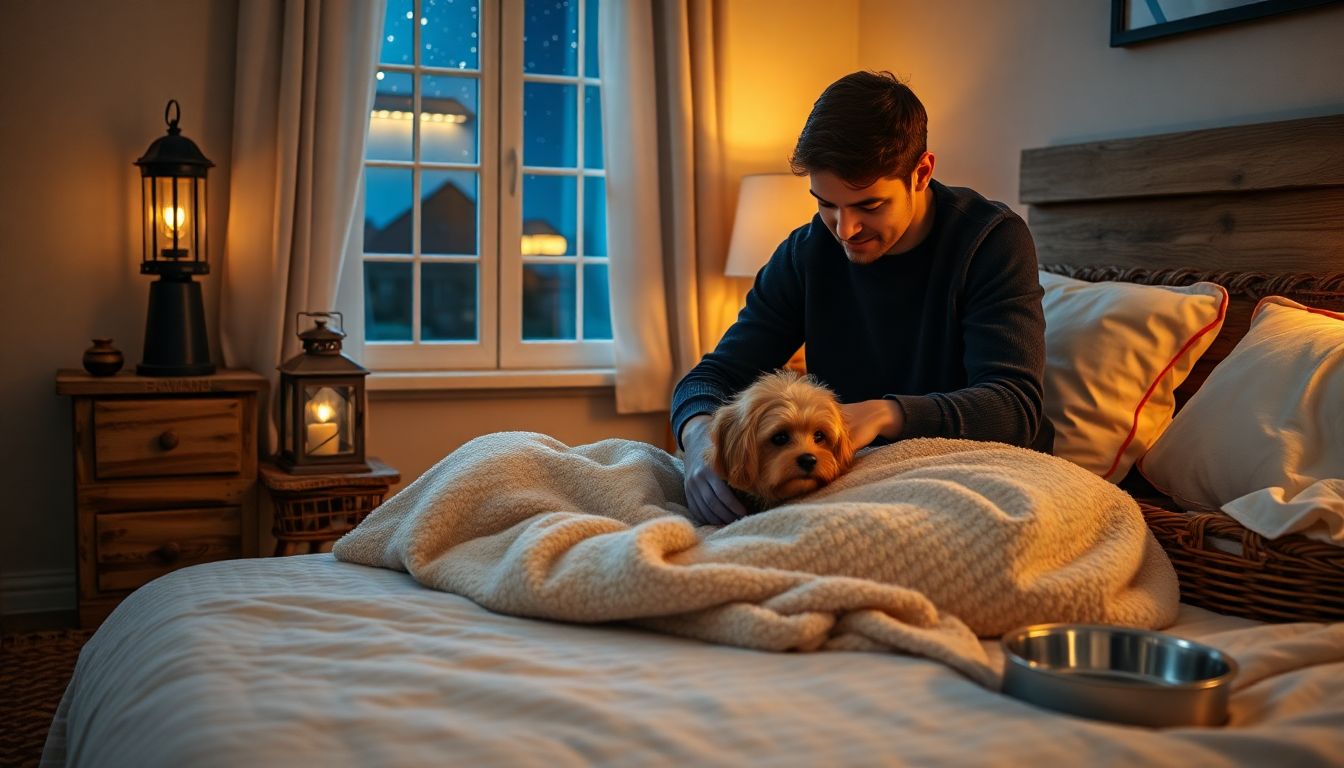Introduction
Caring for your dog overnight means more than just putting them on a bed after nightfall. It’s about ensuring they feel safe, comfortable, and healthy even when you’re not around. Many pet owners worry about nighttime issues — from restlessness to illness. This guide will walk you through everything you need to know for proper overnight dog care, no matter your dog’s breed or age. The right overnight setup brings peace of mind for both pets and their people.
Essential Parts of Overnight Dog Care
Importance of Consistent Schedule
Dogs thrive on routine. Having a set bedtime, walk time, and feeding schedule helps them sleep better and feel more relaxed. A predictable routine leads to reduced anxiety and a stronger bond between you and your pet.
Understanding What Your Dog Needs
Every dog is different. Their overnight care depends on age, health, size, and personality. Older or sick dogs may need closer monitoring or medications. Signs of discomfort like whining, panting, or restlessness should be taken seriously.
Preparing Your House for Overnight Care
Make the sleeping area safe by removing anything they could chew or choke on, like loose wires or small items. Always provide clean water to prevent dehydration, especially on hot nights. Add comfort items like favorite toys or a familiar-smelling blanket to ease anxiety.
Essential Equipment and Supplies for Overnight Dog Care
Bedding and Comfort Items
Choose a soft, supportive bed, crate, or mat that fits your dog’s size. Dogs that like to burrow or nest may prefer a blanket. Ensure the area is not too hot or cold — heated pads in winter and cooling mats in summer can help maintain comfort.
Safety and Monitoring Devices
Use pet cameras to monitor your dog without disturbing their sleep. Motion sensors can alert you to movement or restlessness. Gentle lighting helps you see without startling your dog. Gates or barriers can keep them safely in place overnight.
Safety and Comfort: General Best Practices
Create a Consistent Bedtime Practice
Establish a calming bedtime routine with a quiet walk or gentle petting. Avoid noisy or exciting activity before bed. Offer potty breaks and a light meal at least an hour before sleep to help them settle more comfortably.
Coping with Anxiety and Stress
Signs of nighttime anxiety include shaking, pacing, and barking. Help soothe your dog with calming products like pheromone diffusers or a covered crate. Crates can offer a sense of security when used properly.
Check on Them Overnight
If your dog seems restless, check on them quietly without waking them completely. Keep emergency contacts accessible. For serious symptoms like breathing issues, vomiting, or injury, seek emergency veterinary care immediately.
Health Aspects of Overnight Dog Care
Health Emergencies Must Be Detected
Know the warning signs: seizures, labored breathing, bleeding, or extreme fatigue require urgent care. Keep a pet first aid kit with essentials like antiseptic, bandages, and basic medications. Being prepared can save your dog’s life.
Coping with Special Needs and Principles
Older dogs or those with chronic pain may need special bedding and scheduled medication. Work with your vet to ensure proper overnight management and monitoring. Personalized care is crucial for dogs with special conditions.
Conclusion
Overnight dog care requires planning, patience, and attention to your dog’s unique needs. Create routines that match their habits and set up a safe, comfortable environment. Stay observant, respond to their signals, and be prepared for emergencies. With the right overnight care, you and your dog can enjoy peaceful nights and happy mornings for years to come.









